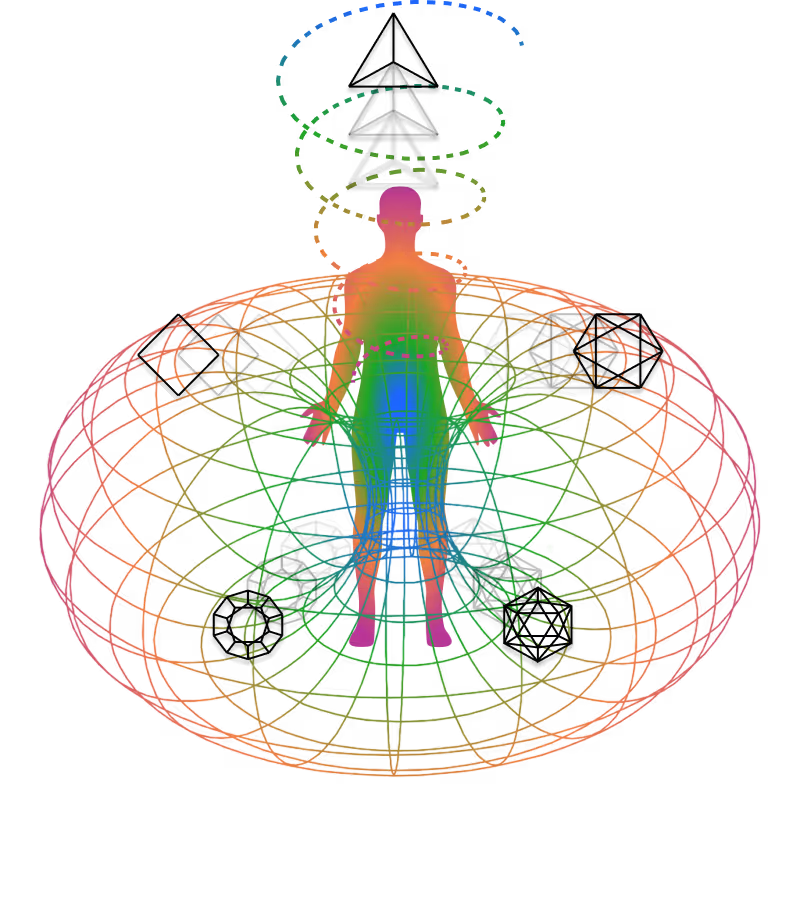Introduction to Metaphysics
Lesson Details
A brief module introduction into metaphysics and consciousness studies.

🎙️ Related Podclass
Lesson Content
Consciousness. The ultimate metaphor for existence that allows us to experience life itself. Philosophers, scientists, technologists, and the clergy across the world throughout recorded human history have engaged in the topic of consciousness to produce varying worldviews within social and cultural spheres. From its ancient roots in the forests of pre-Vedic India to the macro-cosmo/micro-quantum experiments that assist with understanding how we experience reality, consciousness pervades anything and everything, because all that there is in our experience is attributed to consciousness. For some this may seem impossible to consider, given their assumptions of the world are conditioned by social and cultural factors, consciousness is so mysterious that its taught not to exist or a byproduct of dead matter and electric activity in the brain. How can that be and willfully taught across generations of scientific enquiry? To understand the significance of studying consciousness, we must investigate reality itself (metaphysics) while being critical towards unexamined assumptions that permeate in our (post-)modern global culture. This module aims to discuss the history behind consciousness and the best theories that accurately reflect reality while remaining critical of claims that lack expository power and are downright absurd. The objectives of the module is to become more intimately familiar with your Self, consciousness, and how we should approach scientific enquiry into consciousness.
Fields of classical physics, psychology, biomedical sciences, and computer engineering interact over topics of consciousness as if our awareness, ability to sense, think, or feel are objectified to a material/physical construct. This is what I grew up learning in public school amongst popular science media like comics, video games, and movies. As a child in the West growing up in the early 90s, you are not exposed to educational content throughout your schooling that seriously challenges the paradigm distilled in the curriculum you received. This notion also extends into the workplace, government, and other social cohorts, but I will reserve cultural commentary on education for the Popular Education exploration, however the topic of consciousness and popular education are uniquely bound together. Developing scientific literacy of consciousness enables an “umbrella” literacy for the many scientific and social fields of research. The role consciousness plays in science and society will be introduced throughout the upcoming lessons, and I think it would be in your interest to at least have a foundation that you can build from. I am certainly not the most qualified S.T.E.M. teacher you will interact with, yet that is exactly the point of departure necessary to understand the philosophy of science behind the claims being made. It is my effort to demonstrate to you my thought process in words and art to depict the closest knowledge of reality and why some claims are bullshit. Knowing the difference will make a significant difference in your journey of life and community.
Module
This module is composed of reviews and analysis of contemporary scientific metaphysical theories and wisdom discerned from philosophy (East, West, North, and South). Initial plans for this module include academic and scriptural research that reviews consciousness viz metaphysics. I am highlighting a particular philosopher who inspired developing this module into the Critical Sustainability philosophy, Bernardo Kastrup whom promotes Analytical Idealism. This is an extension of my original philosophical pursuit to understand consciousness via Paulo Freire in Pedagogy of the Oppressed, under the study of “critical consciousness” (see Popular Education). Both philosophers were born in Brazil and approach consciousness from polar directions, physical sciences vs. social sciences, yet somehow converge back together when we arrive at the practical nature of witnessing the world through consciousness. Further content will then link this convergence back to Dharmic philosophies and its contributions to Western thought. Establishing both scientific approaches under the branch of Metaphysics will aid in comprehending reality and your capacity to transform it.
🤌 Key Terms
🤌 Reflection Questions
Reflect on key questions from this lesson in our Exploration Journal.

Lesson Materials





